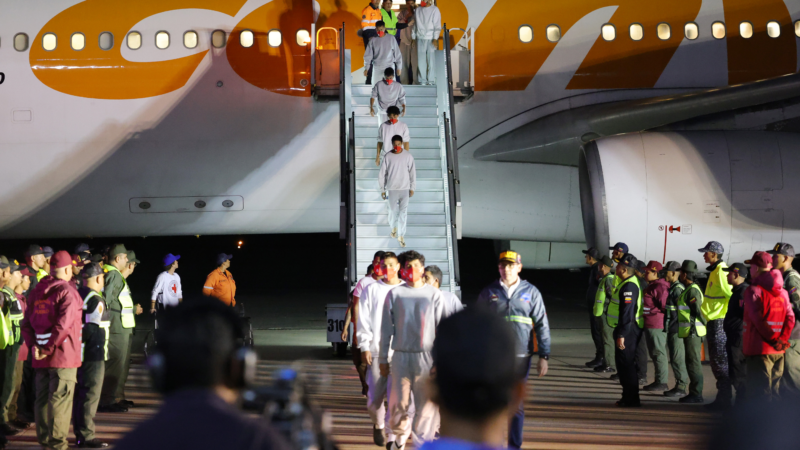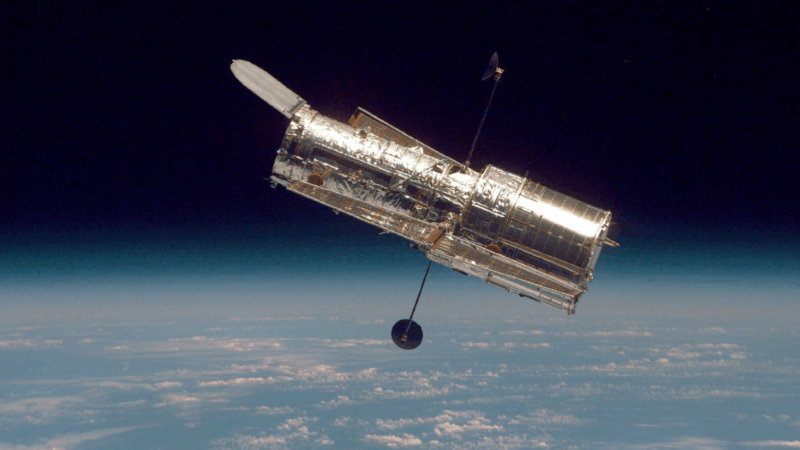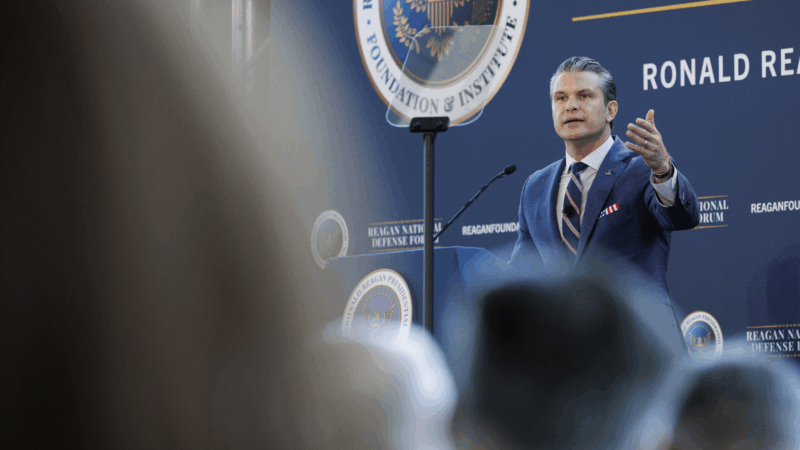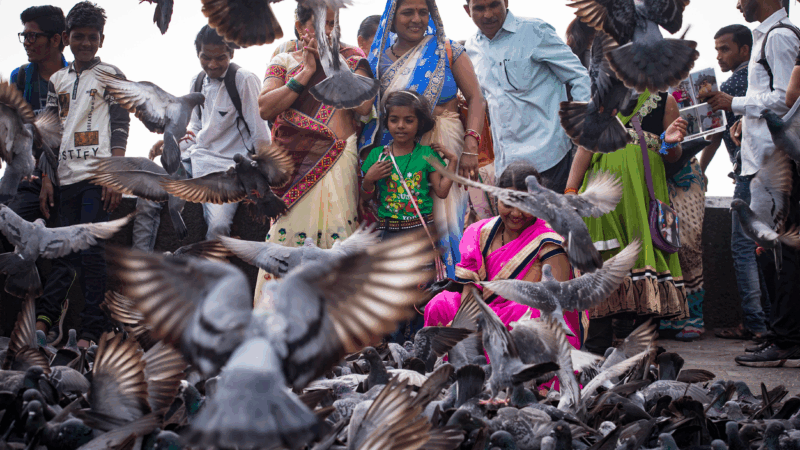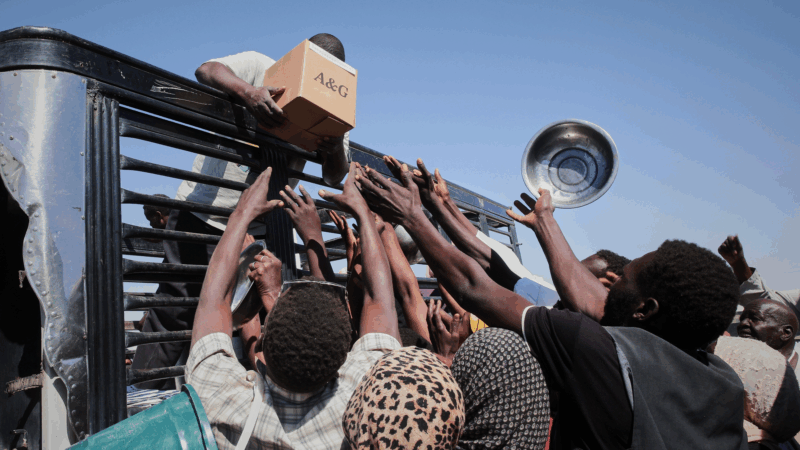Venezuela says it will start accepting repatriation flights from the U.S. again
Venezuela has announced that it will resume accepting flights of its citizens who are deported by U.S. immigration authorities.
Jorge Rodríguez, the president of Venezuela’s National Assembly, said on Saturday in a post on social media that the repatriation flights would begin again as early as Sunday. “Migration is not a crime,” he added.
Rodríguez, who has been negotiating with U.S. officials on immigration issues, said Venezuelan authorities “will not rest” until they secure the return of any citizens who require it.
The White House did not immediately reply to NPR’s request for comment on Sunday.
In his statement, Rodríguez also alluded to the deportation of some Venezuelans to El Salvador earlier in March, when President Trump invoked the 1798 Alien Enemies Act in order to target alleged members of a violent Venezuelan prison gang.
A total of 238 Venezuelans were deported in that operation, which remains under scrutiny by a federal judge who had attempted to block the deportation flights and continues to seek information from the Trump administration about why they went ahead. Of the 238, the Trump administration said 137 people were deported under the Alien Enemies Act and 101 were deported under regular immigration proceedings.
Venezuela’s President Nicolás Maduro has called for the return of the Venezuelan migrants sent by the U.S. to El Salvador, where President Nayib Bukele said they were transferred to a mega-prison known as CECOT.
Families of some of the Venezuelans who were deported disputed the government’s claims that the men had gang connections.
Maduro has said the Venezuelan migrants were kidnapped.
Venezuela stopped accepting repatriation flights from the U.S. on March 8. It came after Trump announced that the U.S. would cancel the Biden-era permit that allowed California-based Chevron to extract and export oil from Venezuela, a major source of revenue for the country.
But last week Secretary of State Marco Rubio warned that the Trump administration would impose “new, severe, and escalating sanctions” on the country unless it began accepting migrants again.
Carrie Kahn contributed reporting from Rio de Janeiro.
Light from satellites will ruin majority of some space telescope images, study says
Astronomers have long been concerned about reflections from satellites showing up in images taken by telescopes and other scientific instruments.
Defense Department is reviewing boat strike video for possible release, Hegseth says
In a speech on Saturday, Defense Secretary Pete Hegseth defended the strikes, saying: "President Trump can and will take decisive military action as he sees fit to defend our nation's interests."
Bama, Miami in, Notre Dame out and Indiana No. 1 in College Football Playoff rankings
Nobody paying attention for the past 24 months would be surprised to see Indiana – yes, Indiana – leading the way into this year's College Football Playoff.
McLaren’s Lando Norris wins first F1 title at season-ending Abu Dhabi Grand Prix
Red Bull driver and defending champion Max Verstappen won the race with Norris placing third, which allowed Norris to finish two points ahead of Verstappen in the season-long standings.
A ban on feeding pigeons ruffles lots of feathers in Mumbai
The pigeon population has exploded — a result of people feeding the birds. For some it's a holy duty and a way to connect to nature. Critics point to health risks tied to exposure to pigeon droppings.
UN humanitarian chief: world needs to ‘wake up’ and help stop violence in Sudan
The UN's top humanitarian and emergency relief official has told NPR that the lack of attention from world leaders to the war in Sudan is the "billion dollar question".

